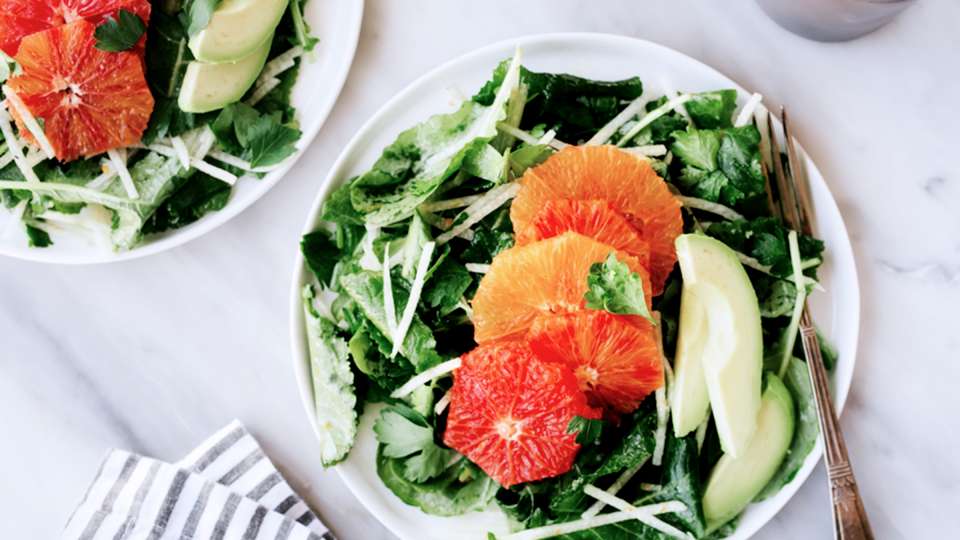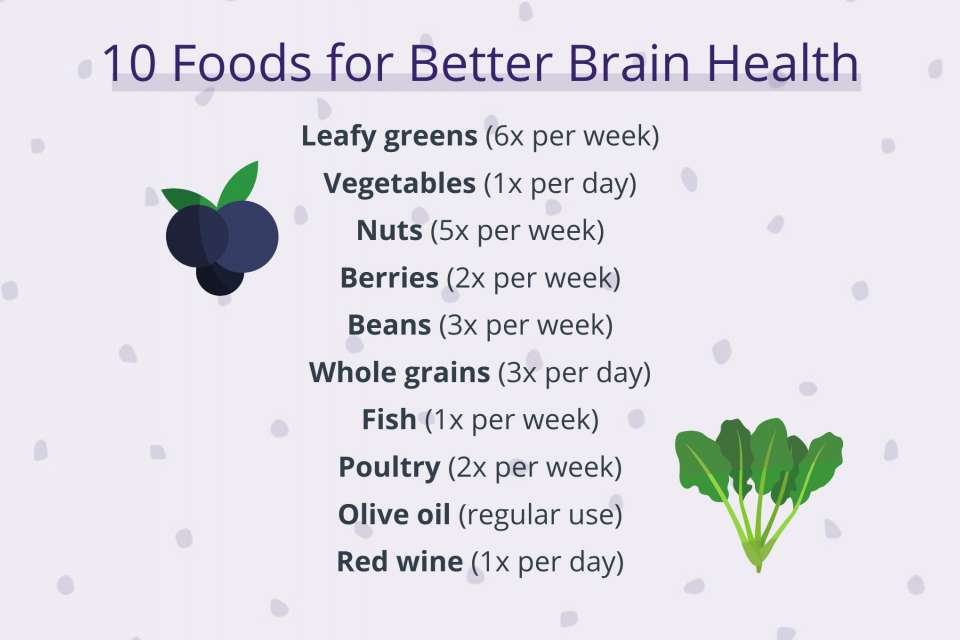
While you may know certain foods are better for your overall health and wellness, you may not realize just how much that kale salad and lentil soup are doing for you. From boosting your fertility to increasing your resiliency, nutritious foods power not only your body but also your mind.
“Basically, a healthy diet can help us to maintain or improve cognitive function and a healthy brain,” explains Anne Linge, a registered dietitian and certified diabetes care and education specialist at the Nutrition Clinic at University of Washington Medical Center-Roosevelt.
How much exactly? Well, in a promising 2015 study, researchers developed eating guidelines — dubbed the MIND diet — highlighting certain types of foods that specifically nourish and protect the brain. In that observational study, some participants were able to slow their rate of cognitive decline by the equivalent of 7.5 years.
What’s more, Linge says, the types of foods found in the MIND diet seem to benefit you no matter how old you are or at what age you start.
“While there’s an increased risk of dementia in those above 65 years of age, research shows that changing your food intake can make a big difference, whether that’s starting as early as your 20s or not until your 50s and 60s,” she says.
Linge breaks down the 10 main food categories in this brain-boosting diet and dishes on what you can eat for better memory, focus and overall brain health.
What is the MIND diet?
When creating the MIND diet — short for Mediterranean-DASH Diet Intervention for Neurodegenerative Delay — researchers combined elements of two existing diets known to improve heart health: the Mediterranean diet and the DASH diet.
“The Mediterranean diet focus on lots of vegetables, fruits, nuts and heart-healthy oils,” Linge says. “When we talk about the DASH diet, the purpose is to stop high blood pressure, so we’re looking at more servings of fruits and vegetables, more fiber and less saturated fat.”
In comparison, the MIND diet beefs up the amount of leafy greens, calls out whole grains and berries, focuses on fish and poultry and emphasizes the use of olive oil. It also includes some suggestions on foods you should consume less often: red meat, fried and fast foods, pastries, sweets and certain dairy products like cheese, butter and margarine.
“The MIND diet ends up being high in folate, carotenoids, vitamin E, flavonoids and antioxidants,” Linge says. “All of these things seem to have potential benefits to the cognitive function.”

Leafy greens
According to the MIND diet, enjoy at least six servings of leafy greens each week. Think veggies like spinach, collard greens, kale and romaine lettuce.
These types of vegetables contain good-for-you nutrients like vitamin K and folate, Linge says, as well as phytonutrients, which are natural compounds produced by plants that promote healthy cell growth and reduce inflammation.
Other vegetables
In addition to that arugula, the MIND diet recommends eating at least a serving of other kinds of vegetables once per day. Opt for nonstarchy options like asparagus, artichokes, bell peppers, Brussels sprouts, broccoli and cucumber, all of which have great nutrients and fewer calories than their starchy cousins.
If you’re not exactly the type to measure as you eat, Linge recommends trying the plate method. Fill half your plate with those leafy greens and veggies, a quarter with whole grains and a quarter with protein.
Nuts
If you’re always on the go, the next MIND diet food category is totally portable and requires zero prep. How’s that for a double win?
Get at least five servings of nuts per week, according to the diet’s guidelines. Nuts are a prominent source of vitamin E, a prime nutrient to protect against cognitive decline, as well as a good source of healthy, plant-based fats.
Berries
While the Mediterranean and DASH diets both include fruit as a general category, the MIND diet calls out two servings of berries, in particular, per week.
That’s because berries have those aforementioned phytonutrients like flavonoids and antioxidants, which research shows can improve memory.
Beans
Beans — everything from lentils and soybeans to kidney beans and black beans — are another type of food the MIND diet highlights. You’re encouraged to incorporate at least three servings per week.
If beans aren’t exactly your favorite, well, Linge says there are plenty of easy ways to incorporate them into your meal planning. Toss them into a vegetable soup, load up on hummus or cook up a hearty pot of chili.
Whole grains
To make sure you’re fueling your body and brain, get three or more servings of whole grains each day. Rich in fiber, whole grains release glucose (aka energy) into your bloodstream at a slow, steady pace for better concentration and focus, Linge says.
Popular options include things like oatmeal, whole wheat bread or pasta, brown rice and quinoa.
Fish
The MIND diet recommends at least one serving of fish per week, but it’s a good idea to focus on fatty fish like salmon, trout, mackerel and sardines. These fish are high in omega-3 fatty acids, which research suggests can help support healthy brain function.
“Omega-3s seem to help stop the cognitive decline of elderly patients, in particular,” Linge notes. “Fatty fish oils are a very good source of that.”
Poultry
Incorporate at least two servings of poultry, such as chicken or turkey, into your meals each week. These lean white meats are a great source of protein with less fat than your typical red meats.
While that might seem easy enough, Linge cautions that the preparation matters. For example, fried chicken isn’t exactly your healthiest choice, and the MIND diet encourages you to limit fried and fast foods to one or fewer servings per week.
Olive oil
“Olive oil is a good resource for monounsaturated fats, as is avocado oil,” Linge says.
These types of healthy fats not only help reduce cholesterol but also contain vitamin E, that brain-boosting nutrient. There isn’t a specific serving recommendation, though — the MIND diet simply encourages you to use olive oil as your primary oil when cooking or baking.
Wine (yep, wine)
If you consider yourself an oenophile, well, here’s another reason to uncork a bottle. According to the MIND diet, a glass of red wine a day isn’t a problem. That’s because red wines contain flavonoids, that plant-produced compound known for its anti-inflammatory properties and neuroprotective qualities.
All that said, Linge says it’s best to be careful about your wine consumption to ensure you’re not drinking in excess, especially if you’ve had a difficult relationship with alcohol in the past.
“You might think of the MIND diet as a list of best practices,” she explains. “You don’t have to follow every guideline, but wow, if how you eat can prevent or delay cognitive decline, what a fabulous thing.”

 Healthy ideas for your inbox
Healthy ideas for your inbox





